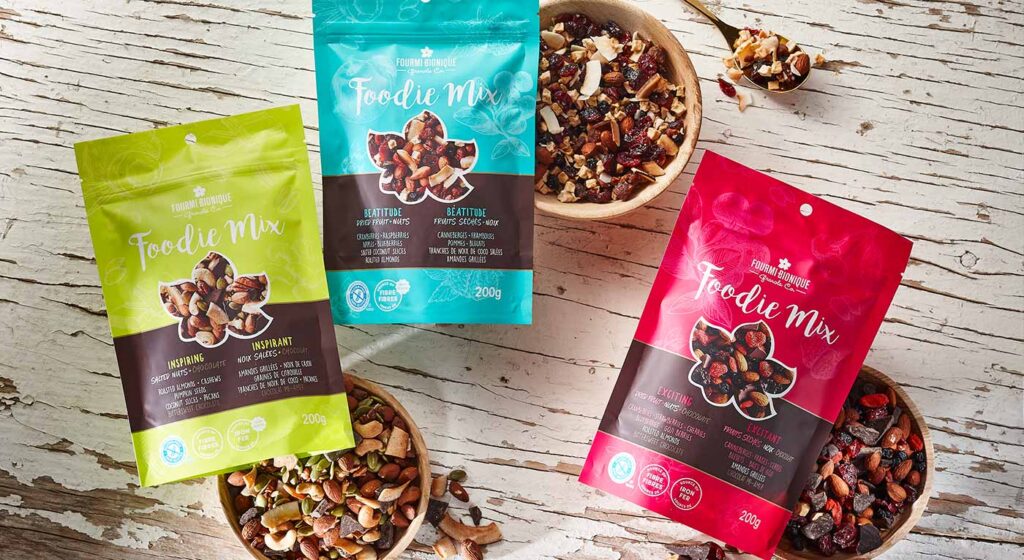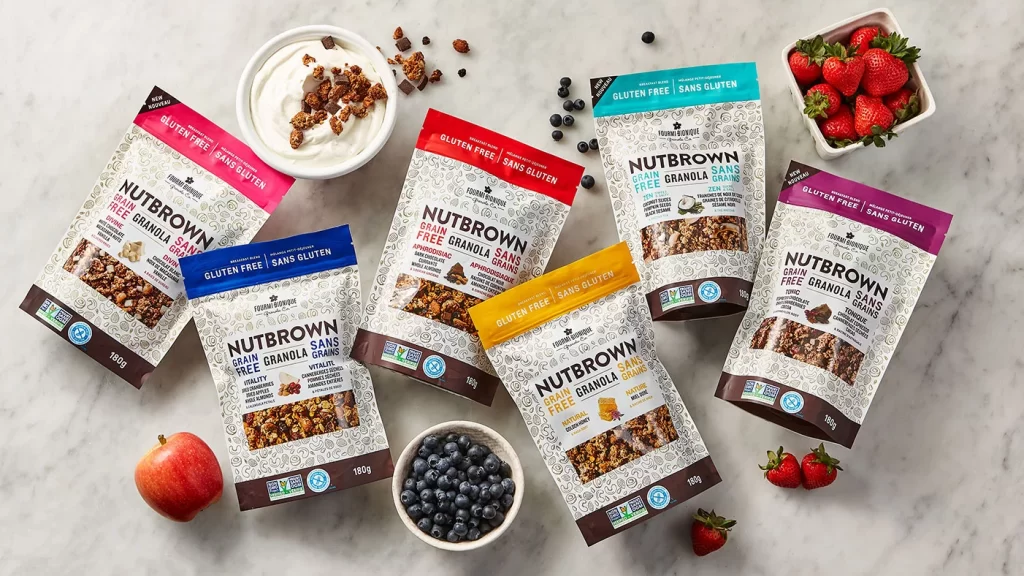Regenerative agriculture is a fast-growing movement that aims to restore soil health, increase biodiversity and lower greenhouse gas emissions. At La Fourmi, we have been advocates of this type of movement since day one, and we’re confident it’s the way to achieve a sustainable food future. Not familiar with regenerative agriculture? Find out how it benefits the environment and consumers, and how we at La Fourmi incorporate this practice into our granola and snack production.
What Is Regenerative Agriculture?
Regenerative agriculture is an agricultural production system that aims to regenerate soil, biodiversity and local ecosystems through practices such as crop rotation, grassland and animal management and water harvesting. These practices replenish soil nutrients, reduce greenhouse gas emissions and support biodiversity growth.
- Crop rotation involves regularly switching over the crops grown on a field, rather than growing the same thing over and over. It replenishes soil nutrients, controls weeds and keeps diseases and pests at bay.
- Grassland and animal management replenish the soil’s nutrients and supports biodiversity growth by having animals graze grasslands rather than cutting them. Animals can also help control weeds and pests.
- Lastly, water harvesting is another important practice in regenerative agriculture. The goal is to harvest rainwater for irrigation using methods like water retention ponds, levees and canals. Doing so reduces agricultural water requirements and protects water resources.
Environmental Benefits
Regenerative agriculture has many environmental benefits.
- Regenerating the soil allows it to store more carbon, which contributes to the fight against climate change. In fact, soils are an important carbon reservoir, and when agricultural practices lead to increased organic matter in the soil, more carbon is stored, thus reducing greenhouse gas emissions.
- It also reduces the need for fertilizers and pesticides, which is good for soil and water health. Regenerative agriculture replenishes nutrients in the soil, so plants need less fertilizer to thrive. And by reducing disease and pests through crop rotation and grassland and animal management, the need for pesticides decreases.
- Lastly, encouraging biodiversity supports local ecosystems and protects endangered species. Regenerative agriculture creates habitats for wildlife, through practices such as grassland management and water harvesting. This supports wildlife populations and protects endangered species.
Healthy and Fair-Trade Agriculture
The benefits of regenerative agriculture aren’t just environmental but also health related. Regeneratively produced foods tend to be nutritionally richer because they grow in more nutrient-rich soils. These healthy soils allow plants to better absorb nutrients, resulting in more nutritious food for consumers.
Beyond health, ingredients produced using such methods that respect their natural growth rate also tend to have more flavour.
Organic Is Foundational
Organic farming is based on environmentally friendly farming practices that avoid using harmful chemicals. It also maintains a natural balance in the fields by using methods such as crop rotation and the use of organic fertilizers. As such, organic farming is foundational to regenerative agriculture.
Without organic farming, soils would be overharvested and biodiversity would be destroyed, making it impossible to use regenerative practices. By combining the two farming systems, we can create sustainable, environmentally friendly farms that produce healthy, nutritious food for all.
How La Fourmi Incorporates Regenerative Agriculture into Production
At La Fourmi, we are proud to incorporate regenerative agriculture into our granola and snack production. We work primarily with local organic farmers. As a certified B Corp, we encourage our suppliers to use these practices, not only improve the quality of our products but also to work toward a sustainable agricultural and food future.
By supporting local farmers who practice regenerative agriculture, we all contribute to a healthier local economy!


